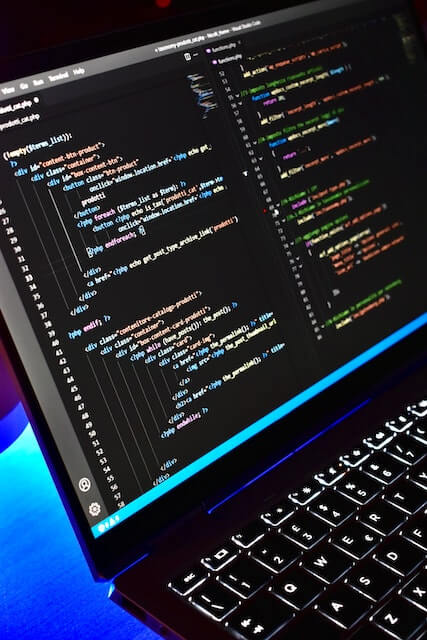
HIPAA Compliance Checklist for Offshore and Nearshore Companies

The expansion of digital services within the Healthcare industry has ushered in new challenges, as many people began to increasingly tap into digital ways of communication with Healthcare providers. The pandemic has been a primary catalyst in this trend, and as a result, the industry has become more data-heavy than ever, raising issues related to the safety of patients’ data.
With that in mind, data safety is a major concern for companies that have their software development workforce in offshore/nearshore zones, such as Eastern Europe, Latin America, and Asia. Working with nearshore/offshore developers to develop your Healthcare software often means that they handle sensitive data or Electronic Protected Health Information (ePHI), which falls under the protection of the Health Insurance Portability and Accountability Act, (commonly known as HIPAA). Thus, if you’re planning to build an offshore/nearshore unit for your Healthcare software product, this post is for you.
What is HIPAA compliance for nearshore/offshore teams?
HIPAA regulations extend to all organizations and their business associates that deal with the ePHI of US citizens, which means your nearshore/offshore software developers must ensure ePHI protection according to HIPAA regulations.
HIPAA compliance assumes protection of ePHI that includes the following patient information:
- Name
- Addresses
- Dates
- Contact information
- Devices/vehicle identifiers
- Photos and images
- Biometric data
Thus, if your company farms out any part of software development that deals with ePHI, your nearshoring/offshoring software development partners must work in line with HIPAA compliance requirements, which, broadly speaking, assumes eliminating risks of data breach, strengthening confidentiality, and safeguarding data storage.
We at nCube provide Ukrainian software developers for some major players in the Healthcare field, such as AstraZeneca and Dentsply Sirona. Thanks to this experience, we know that following HIPAA compliance is essential, both for our clients and for us as the vendor of nearshore/offshore developers. With that in mind, when you build a nearshore/offshore unit, you may be asking yourself, what should be on your HIPAA compliance checklist?
Key HIPAA compliance requirements for your nearshore/offshore teams
In our experience, the HIPAA compliance checklist for offshore/nearshore developers includes the following points:
Privacy Rule
This rule assumes that your nearshoring/offshoring software developers must protect ePHI by taking measures aimed at preventing unauthorized access to patients’ data. To ensure HIPAA compliance in this regard, it’s necessary to document your HIPAA compliance software requirements and make them available for your nearshore/offshore software developers as well as conduct HIPAA compliance training for each team member.
Security Rule
This rule outlines regulations related to the use, storage, and transmission of ePHI. In this regard, your nearshore/offshore software developers should take measures to ensure data protection on several levels, thus eliminating potential gaps that may lead to data breaches. These levels include:
Administrative safeguards. This level assumes conducting necessary HIPAA compliance staff training to ensure your nearshore/offshore developers are aware of your company’s HIPAA compliance requirements and policies. A good practice is to create a separate document specifically for your nearshore/offshore unit that will outline strategies aimed at safeguarding ePHI and create an action plan in case risks of data breach materialize.
Physical safeguards. As the name suggests, this level deals with the rules and restrictions of physical access to data. Safeguarding data on the physical level means keeping it in a safe environment, for example, in a facility with key-based access equipped with alarms and 24-hour CCTV monitoring.
Technical safeguards. This level suggests ensuring the protection of ePHI by restricting access to authorized team members using reliable methods of authentication. Besides, HIPAA compliance calls for a constant audit and monitoring activities in systems containing ePHI as well as ensuring encrypted data transmission. Thus, your nearshore/offshore unit needs to have access to the necessary encryption and auditing tools in addition to reliable antivirus software.
READ ALSO: Healthcare IT Trends Before Covid-19
Continuous assessment of security
HIPAA compliance for your software offshore/nearshore team members takes more than a formal meeting. Rather than holding a single training, it’s best to implement a continuous process of analyzing risks, strengthening security, and assessing the efficiency of ePHI protection measures. With that in mind, it’s recommended to hold regular audits to ensure consistent HIPAA compliance by identifying potential weak spots and assessing the efficiency of your existing administrative, physical, and technical measures.
Data breach protocols
HIPAA compliance suggests forming a step-by-step action plan to follow in case of a data breach. Needless to say that your nearshore/offshore unit should be aware of the steps they should take in this case.
Data backup
Data backup should be an essential part of your HIPAA compliance checklist, as it allows you to avoid (or at least mitigate) the consequences of data loss or exposure. Thus, your nearshore/offshore unit should keep a backup in a separate data center, as it’s the only way to ensure full-fledged data security.
Data encryption
HIPAA compliance requirements emphasize data encryption as the key way to protect ePHI from being exposed. Encrypting data helps prevent data leaks that may happen, whether it’s a cyber attack or human error. Your nearshore/offshore software developers should apply this practice to guarantee ePHI integrity and safety.
Documentation and reporting
In the end, your nearshore/offshore partners should document every point on your HIPAA compliance checklist, including administrative, physical, and technical and other safeguards. It’s also important to require them to document and report system vulnerabilities and the results of HIPAA compliance audits.
Afterword: Key points on the HIPAA compliance checklist for nearshore/offshore software teams
Companies and their partners (including nearshore/offshore developers) that work with ePHI of US citizens, must conform to the HIPAA compliance regulations, as the repercussions of its violation are severe and may result in both financial and reputational losses.
READ ALSO: How to Build Your own Nearshore Development Team
Your HIPAA compliance checklist for your nearshore/offshore unit should contain the following
- Documentation: All points on your HIPAA compliance checklist;
- Training: HIPAA compliance requirement training should be conducted for each team member;
- Administrative, physical and technical safeguards: All should be established to protect ePHI;
- Risk audits: Tracking potential system vulnerabilities and risk audits should be conducted regularly;
- Action plan: A clear guide for your nearshore/offshore unit in the case of compromising data;
- Data backup plan: Creating a copy of data within a separate server to recover it and avoid data loss;
- Encryption: Providing tools and methods for safe data transmission.
We at nCube will gladly share our experience in building nearshore/offshore units for companies that operate the Healthcare field. Contact us.
Recommended articles


